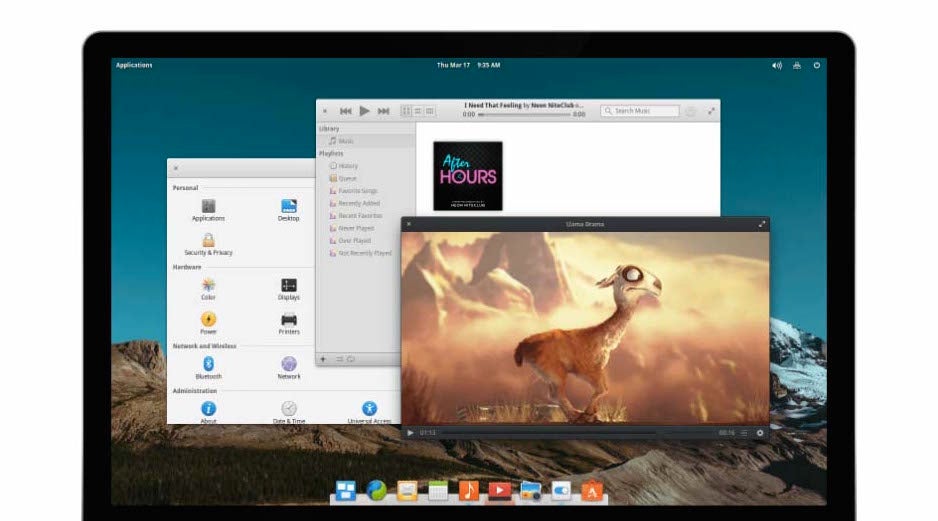In this blog post, Oracle Linux kernel developer Tom Hromatka writes about the new testing frameworks, continuous integration and code coverage capabilities that have been added to libcgroup. In 2008 libcgroup was created to simplify how users interact with and manage cgroups. At the time, only cgroups v1 existed, the libcgroup source was hosted in a subversion repository on Sourceforce, and System V…
Click to Read More at Oracle Linux Kernel Development
Libcgroup in the Twenty-First Century
Libcgroup in the Twenty-First Century
In this blog post, Oracle Linux kernel developer Tom Hromatka writes about the new testing frameworks, continuous integration and code coverage capabilities that have been added to libcgroup. In 2008 libcgroup was created to simplify how users interact with and manage cgroups. At the time, only cgroups v1 existed, the libcgroup source was hosted in a subversion repository on Sourceforce, and System V…
Click to Read More at Oracle Linux Kernel Development
Install All Essential Media Codecs in Ubuntu With This Single Command
If you have just installed Ubuntu or some other Ubuntu flavors like Kubuntu, Lubuntu etc, you’ll notice that your system doesn’t play some audio or video file. For video files, you can install VLC on Ubuntu. VLC one of the best video players for Linux and can play almost any video file format. But you’ll still have troubles with audio media files and flash player.
The good thing is that Ubuntu provides a single package to install all the essential media codecs: ubuntu-restricted-extras.
[Source: It’s FOSS]
Bitcoin Startup Casa Names New CEO as Node Service Goes Open-Source
Bitcoin startup Casa is charging into 2020 with a new look – by winding down its hardware product and shuffling its front office. CEO Jeremy Welch is stepping down from the role with current head of product Nick Neuman taking the helm. CTO Jameson Lopp will remain in his current position but will join the board along with Neuman.
Welch’s decision to step away from his position was linked to personal matters and not the firm’s product decisions, Welch and Neuman said.
Meanwhile, Casa is getting rid of its node; well, at least its physical implementation.
[Source: Coindesk]
South Korea’s government explores move from Windows to Linux desktop
What’s holding the Linux desktop back? Linus Torvalds looks to Chromebooks and Android for the future of the Linux desktop, while Linux Mint developers aren’t happy with each other.
With Windows 7 in its support coffin, some institutions are finally giving up on Windows entirely. The biggest of these may be the South Korean government. In May 2019, South Korea’s Interior Ministry announced plans to look into switching to the Linux desktop from Windows. It must have liked what it saw. According to the Korean news site Newsis, the South Korean Ministry of Strategy and Planning has announced the government is exploring moving most of its approximately 3.3 million Windows computers to Linux.
[Source: ZDNet]
Dino is a Modern Looking Open Source XMPP Client
XMPP (Extensible Messaging Presence Protocol) is a decentralized model of network to facilitate instant messaging and collaboration. Decentralize means there is no central server that has access to your data. The communication is directly between the end-points.
Some of us might call it an “old school” tech probably because the XMPP clients usually have a very bad user experience or simply just because it takes time to get used to (or set it up). That’s when Dino comes to the rescue as a modern XMPP client to provide a clean and snappy user experience without compromising your privacy.
[Source: It’s FOSS]
Elementary OS Has A Bold New Plan To Get Linux App Developers Paid
Here’s a bold statement: Linux open source software developers deserve to get paid for their work. They should have the mechanisms in place to charge for the apps they’re creating — even if it’s just a “pay what you want” model. When developers get paid, they can devote more energy and resources and time into their work, and produce a better product. This is a philosophy that elementary OS picked up and ran with when the company launched its AppCenter. Now elementary OS wants to bring the AppCenter to everyone…. Read more at Forbes.
[Source: Forbes]
elementary OS 5.1.2 Hera update fixes dangerous Linux sudo bug
A few days ago, we reported on an extremely serious sudo bug that impacted some Unix and Linux-based operating systems. While Ubuntu was not affected, two popular operating systems based on it — Linux Mint and elementary OS — were impacted, sadly. This was due to pwfeedback being enabled on those operating systems.
Thankfully, the folks over at elementary have already squashed the bug in the latest version — 5.1.2 Hera. Even better, the sudo vulnerability fix is not the only improvement found in this version of the Linux distribution.
[Source: BetaNews]
Linux 5.6 Is The Most Exciting Kernel In Years With So Many New Features
The Linux 5.6 merge window is anticipated to be ending today followed by the Linux 5.6-rc1 test release. This kernel is simply huge: there is so many new and improved features with this particular release that it’s mind-boggling. I’m having difficulty remembering such a time a kernel release was so large.
The quick summary of Linux 5.6 changes include: WireGuard, USB4, open-source NVIDIA RTX 2000 series support, AMD Pollock enablement, lots of new hardware support, a lot of file-system / storage work, multi-path TCP bits are finally going mainline, Year 2038 work beginning to wrap-up for 32-bit systems, the new AMD TEE driver for tapping the Secure Processor, the first signs of AMD Zen 3, better AMD Zen/Zen2 thermal and power reporting under Linux, at long last having an in-kernel SATA drive temperature for HWMON, and a lot of other kernel infrastructure improvements.
[Source: Phoronix]



